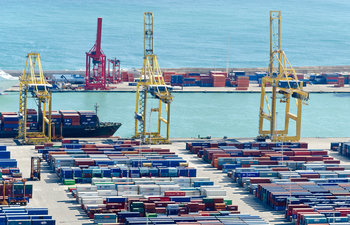
Gains From Trade
Comparative advantage is a foundational economic concept that is used to model gains from trade. A nation benefits from trade when then produce goods for which they have a lower opportunity cost and import goods for which they have a higher opportunity cost than other nations.Example
It costs a nation $1 to produce an apple and $2 to produce an orange. Oranges can be imported for $0.5 and apples for $2. The nation benefits from exporting apples and importing oranges.Comparative Advantage vs Competitive Advantage
Comparative advantage is usually used to model the capacity of nations. Competitive advantage is typically used to model the capabilities of firms.The competitiveness of a nation is very different from that of a firm. For example, a firm may be poor at producing goods but may succeed nonetheless due to capabilities in areas such as marketing and sales. Another key difference is that firms often go bankrupt and disappear if they aren't competitive.Comparative Advantage vs Absolute Advantage
Comparative advantage is a nation, firm or individual that has a lower opportunity cost to produce a good. This doesn't mean they have the lowest cost, only that it is their best production decision.Absolute advantage is the ability of a nation, firm or individual to produce a good more efficiently than all competition. This means they create more value from a unit of input for a particular type of good. This can include lower cost and/or greater quality.It can be shown that nations benefit from trade using comparative advantage. There is no need to have an absolute advantage to benefit from trade. In other words, you don't have to be the most efficient in the world to benefit from trade because you typically benefit from exporting what you are best at producing and importing what you are weak at producing.| Overview: Comparative Advantage | ||
Type | ||
Definition | The capacity to produce a good at a lower opportunity cost than the competition. | |
Related Concepts | ||






























